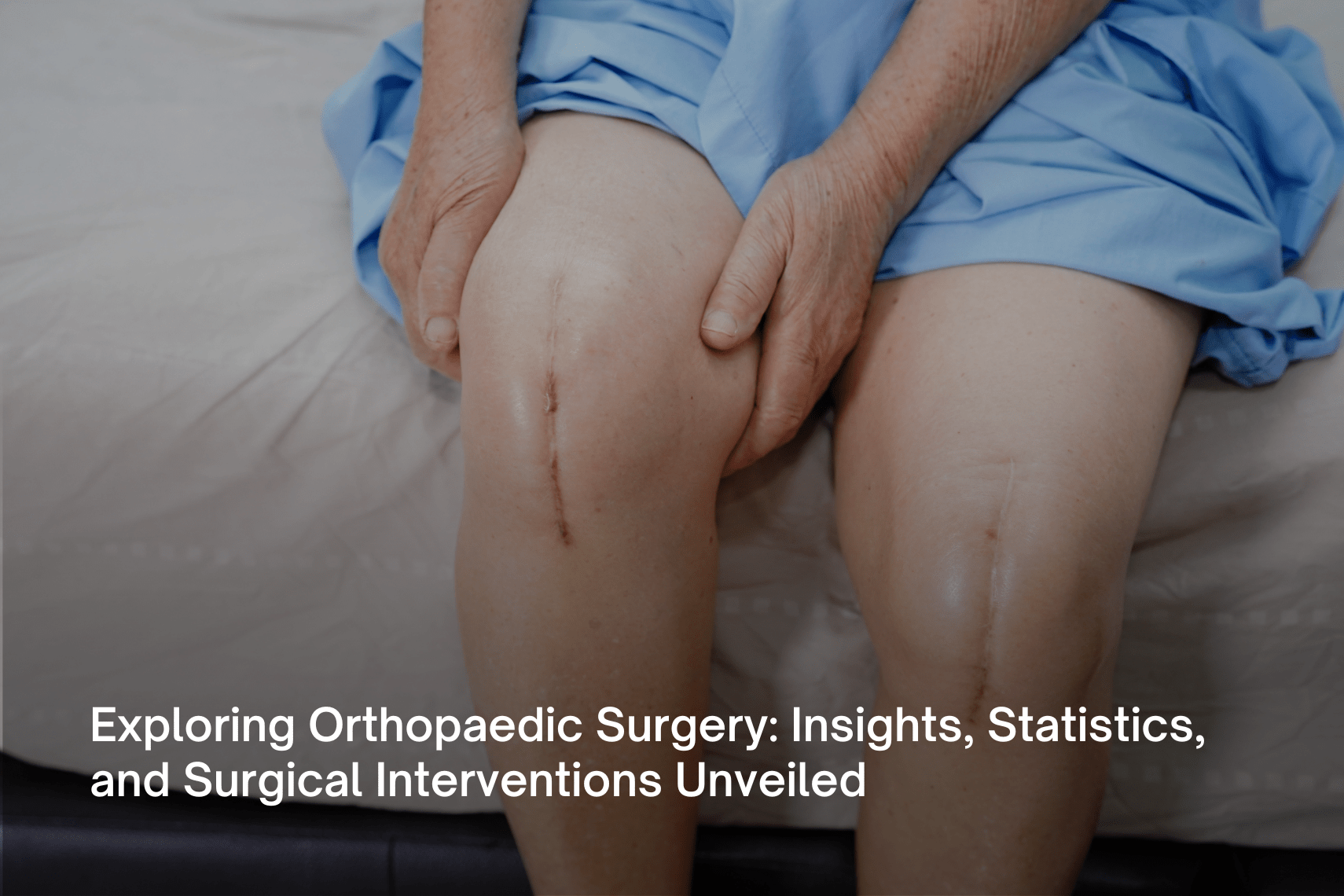
It’s an obvious human emotion to get scared of the word “OPERATION” or “OPERATION THEATRE” and this article is exactly about Embracing the Unknown: Exploring the Mysteries of the Operation Theatre.
Orthopaedic surgery plays a critical role in the management of various orthopaedic conditions, including congenital disorders, acute injuries from road traffic accidents, acquired disorders, and chronic arthritic or overuse conditions. Although the idea of surgery can be daunting, understanding the significance of orthopaedic interventions backed by statistical evidence is crucial. In this article, we will explore specific orthopaedic scenarios, examine relevant statistics, and highlight the importance of surgical interventions.
Congenital Orthopaedic Conditions: Congenital orthopaedic conditions require corrective procedures to address posture and alignment issues. For example, Congenital Talipus Equino Varus (CTEV) can result from insufficient intrauterine space for fetal organ development or reduced amniotic fluid. Around 1 in 1,000 babies are affected by CTEV. Clinical examination by an orthopaedician or an ankle joint X-ray helps diagnose CTEV. Initial treatment often involves specialized orthopaedic shoes and manual management. However, if non-surgical methods fail to correct the condition, surgical intervention becomes necessary.
Scoliosis in Teenagers: Scoliosis, characterized by a sideways curvature of the spine, can lead to postural defects and functional limitations if left untreated. School health checkups and health camps often detect scoliosis cases. Diagnosis is made through clinical evaluation or spine X-ray imaging. Surgical correction is typically recommended for severe cases with a curvature angle exceeding 40 degrees or when non-surgical approaches, such as braces, prove ineffective.
Acquired Orthopaedic Conditions: Surgery is considered for acquired orthopaedic conditions when patients experience persistent or intermittent pain lasting over three months, limited range of motion, compromised daily function, difficulty standing or moving, or inadequate response to conservative measures. Surgical interventions aim to alleviate symptoms and restore normal function.
Osteoarthritis of the Knee: Osteoarthritis (OA) of the knee is a degenerative joint disease that causes pain, inflammation, cartilage loss, and reduced mobility. Surgery for OA is usually considered after exhausting alternative treatment options. In India, approximately 20% of the population above 50 years old suffer from knee OA, and 30% of them require surgical interventions. Knee replacement surgery, involving the replacement of diseased bone parts with artificial prosthetic components, offers better long-term outcomes compared to arthroscopic surgery.
Orthopaedic Injuries from Road Traffic Accidents (RTA): Road traffic accidents (RTA) remain a significant cause of mortality and morbidity in India. Every year, RTAs account for approximately 1,80,000 deaths and 7,50,000 injuries. Among RTA victims, orthopaedic injuries affecting the musculoskeletal system are prevalent. Lower limb fractures are the most common orthopaedic injuries, followed by upper limb, neck, and spine injuries. Surgical interventions are determined by the type, location, and severity of the injury, as well as the availability of healthcare resources and specialists.
Post-operative Follow-up and the Role of Artificial Intelligence (AI): Post-operative follow-up is crucial in ensuring successful orthopaedic surgery outcomes. Monitoring joint recovery, range of motion, and identifying potential complications are essential. Artificial Intelligence (AI) has emerged as a valuable tool in this process. By integrating AI with the expertise of physiotherapists, joint improvement and range of motion can be accurately assessed over time. Fitknees an AI driven device can also assist healthcare professionals in analyzing the knee joint’s condition, aiding surgical decision-making.
In conclusion, Orthopaedic surgery offers effective solutions for a wide range of orthopaedic conditions. By understanding the significance of surgical interventions and considering statistical data, individuals can make informed decisions about their orthopaedic care. Surgical procedures, guided by accurate diagnoses and supported by advancements such as Artificial Intelligence (AI), contribute to successful outcomes and improved quality of life. If you are experiencing an orthopaedic condition, consulting an experienced orthopaedic surgeon is essential to receive personalized care and achieve the best possible outcome.
To know more about Fitknees or how it helps healthcare professionals click on https://ashva.xyz/bringing-knee-examination-to-easy-ville/
